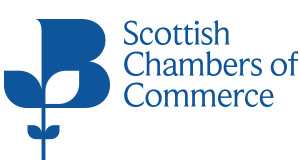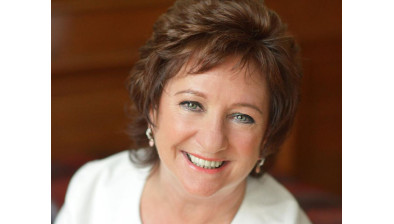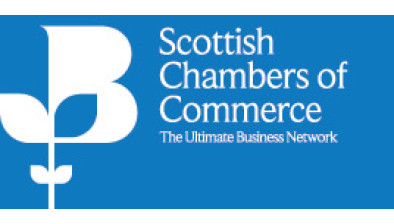SCC: Tax and cost fears hit Scottish business confidence

Scottish businesses are under increasing pressure from rising costs, faltering confidence, and declining investment, according to the latest Quarterly Economic Indicator from the Scottish Chambers of Commerce (SCC).
The survey of 440 Scottish businesses, produced in partnership with the Fraser of Allander Institute, found labour costs and concern over tax continues to impact more than seven in ten firms.
Key findings include:
- Business Confidence Declining: four out of the five main sectors report declines with services reporting a small increase. The sharpest drop-offs were in construction and manufacturing.
- Taxation Concerns Increasing: 72% of all firms reported increased concern from taxation; a rise of two percentage points compared to the last quarter, and up 16 percentage points compared to Q3 2024.
- Cashflow & Profits Squeezed: Cashflow and profits continue to be a significant challenge, with falling trends recorded for both. The construction and retail sectors saw the most significant drop-offs.
- Investment Intentions Frozen: Investment has also taken a significant hit, as four out of the five main sectors reported decline with only the services sector showing a positive net balance across all investment trends.
- Record-High Costs for Hiring: Labour remains a significant cost for over three quarters of firms at 77%. The construction and services sector had near recent historical high levels, while retail firms reported a five-year high of 75%, matching last quarter.
Doug Smith, SCC vice president, and chair of the SCC Economic Advisory Group, said: “Business activity remains weak for most sectors with little signs of recovery expected before year-end. The challenges are familiar: subdued demand, cautious consumer spending, and restrained investment across the economy.
“However, export performance gives reason for modest optimism. The QEI highlighted a slight growth in exports, despite geopolitical challenges, demonstrating the underlying strength of the Scottish market and the clear demand which exists for our goods and services. Boosting this trade must be a priority.
“Considerable progress has been made in recent months on tariffs and international trade deals with our closest partners. Now, the government needs to maintain its focus on international trade by simplifying the export finance system and accelerating the rollout of UK Export Finance’s small business insurance service, to back Scottish exporters and open our economy to the world.
“This progress is fragile. Rising costs, including increased employer National Insurance contributions and the higher National Living Wage, are putting further pressure on margins. On top of this, ongoing global economic uncertainty is complicating decision-making even further.
“Adding to these concerns is growing unease about next month’s UK Budget. Many firms fear they may once again be asked to bear the cost of restoring public finances. With the business tax burden at its highest level in 25 years, the Chancellor must urgently reaffirm last year’s promise of no further tax increases, to restore confidence and enable businesses to drive shared economic growth.”
Dr Liz Cameron CBE, chief executive of SCC, said: “The latest QEI confirms what I’ve seen first-hand over recent months: businesses across Scotland are under pressure.
“From green innovators in Fife to economic mainstays in the West Highlands, firms continue to express real, deep concern over the UK Government’s tax direction and fiscal strategy, increasingly disruptive cyber-attacks, and record-high hiring costs.
“With upcoming budget announcements in November and January, both the UK and Scottish Governments have a golden opportunity to begin restoring business confidence by delivering credible, pro-growth measures.
“That means everything should be on the table: whether that’s rethinking the Employment Rights Bill, delivering a multi-year freeze to spirits duty to support our world-beating Scotch Whisky industry, or cutting VAT for hospitality, leisure and tourism to boost spending and protect jobs.”
Professor Mairi Spowage, director of the Fraser of Allander Institute, added: “The economy remains sluggish with jitters about tax rises in the upcoming UK budget hitting confidence and momentum lost amid stop start growth. Pressure continues on employment levels as businesses continue to adjust to the NIC rises.
“Productivity figures are likely to be downgraded by the OBR making it more difficult for the Chancellor to hit their fiscal rules with tax rises the inevitable outcome. Most likely is a freezing of income tax thresholds, but there have been a number of other tax proposals that have been floated over the summer.
“Looking ahead, our latest Scottish Business Monitor, published today, shows that while Scottish firms are still showing resilience, with modest improvements in employment and sales, there is a growing sense of pessimism. Cost pressures remain acute, and there is widespread caution about the potential impact of the UK Budget.
“The Chancellor’s decisions in the UK Budget will be pivotal, not only for business confidence, but also for determining the size of Scotland’s fiscal envelope for the Scottish Budget in January 2026.”
Stuart Cresswell, Scottish Advisor for AB Ports and member of SCC’s Economic Advisory Group, said: “Scotland has already seen significant capital investment in the development of its Green Freeports, but these bold steps need to be backed by a continued laser like focus by the Scottish Government, its agencies, planners and most importantly the Electrical Network providers in delivering the transmission infrastructure required to plug in the offshore wind capacity being developed.
“This also includes in simple terms making sure that we have enough engineers on the ground to get the job done.”







